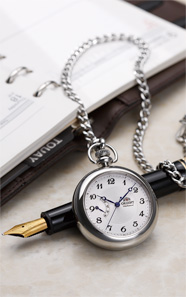How to maintain mechanical watches, although mechanical watches without batteries, but some simple maintenance is still very necessary, which prolong the service life of the watch movement and keep good state very helpful.
If you just bought a new mechanical watch, or if you have owned mechanical watches for years that always seem to break on you, here are some helpful guidelines to keep them running at their smoothest. Even with a great quality watch, it’s important to know the “do’s and don’ts” to maintain your good investment.
Replacing broken watches is more costly than some simple watch maintenance tip.
Winding Your Manual Mechanical Watch
Tip 1: Wind Daily
If you have a manual mechanical watch that needs to be wound, you should do so daily. The watch will perform at its peak if it is fully wound, not if it is running low on energy.
Even if you don’t intend to wear the watch that day, it should still be wound in order to prevent the lubricants that help the gears run smoothly from congealing.
Tip 2: Wind Consistently
It is also recommended to wind the watch at the same time every day for consistency. As a good practice, it is probably best to wind your manual watch in the morning each day before use to ensure the highest quality performance.
Tip 3: Wind When It’s Off
If you do need to manually wind your mechanical watch, do so before putting it on your wrist. If you are wearing the watch as you try to turn the crown, you could end up putting unnecessary stress on the winding stem that will cause long-term damage.
When winding your watch, continue to twist until you feel resistance as the mainspring tightens. Once you feel resistance, stop! Any further strain can cause the mainspring to break.
Water Tips
Avoid water damage to your watch by following these rules of advice:
Tip 4: Avoid water, if your watch is not water-resistant.
Tip 5: Pay attention to specific instructions by your manufacturer about how much water pressure your watch handle, even if your watch is water-resistant.
Tip 6: If you wear a watch in the pool, while the water may not harm your watch, chlorine can still be damaging.
Tip 7: Do not pull on the crown of the watch while underwater, even if your watch is a diver watch or water-resistant. This will cause water to flood the inside of your watch.
Tip 8: Do not shower with your watch. Shampoo and soap can be harmful for the gears.
Tip 9: Seals to resist water can also crack over time, so just be careful and remember to schedule your regular maintenance.
What to Avoid
To keep your watch running at its best, avoid these harmful environmental factors:
Tip 10: Stay clear of strong magnetic fields. You could magnetize your watch inadvertently and cause erratic gear behavior. The watch may also stop entirely! Most modern-day mechanical watches have some magnetic resistance, but you should still be careful. If you have an older watch, it may be more at risk.
Tip 11: If you can avoid it, do not wear your watch in extreme temperatures. Moving between excessive hot and cold temperatures can cause the parts to expand or contract,which may cause damage to the whole unit. Keeping your watch in extreme heat for too long can also cause your watch’s lubricant to congeal, causing friction on the gears.
Tip 12: Just because a watch is “scratch-resistant” does not mean it is “scratch-proof.” Avoid harmful objects that can scratch your watch, as well as dirt and chemicals that can cause damage slowly over time. Avoiding dirt and chemicals will also prevent rusting.
TIP 13: Schedule Maintenance Regularly
Like any car, mechanical watches need regular cleanings and oil changes to continue running effectively. Sources on average recommend between 2-7 years for regular mechanical watch maintenance.
Watch manufacturers may provide their own recommendations on the maintenance needs of their products as well, so be sure to ask your manufacturer for specific concerns.
Pocket watches are more susceptible to dirt, so regular maintenance should be scheduled every two years.


